When you’re engaging with sextech—be it smart sex toys, sex robots, the digital realm, virtual reality (VR), apps, sending sexy selfies, or any other hot new thing on the market—it’s important to ensure that everyone involved understands the implications around consent.
This guide will help you navigate some key questions surrounding consent and sextech in your personal life and relationships, and how sextech can (and cannot) help offer answers to these questions.
If you’re chatting with someone that doesn’t understand the implications of consent in the digital realm, send them here to get caught up.
Understanding Consent
The idea of consent is relevant to many aspects of our lives. However, many of us struggle to comprehend its practical application, most notably when it comes to our most intimate relationships.
The definition used by the anti-sexual violence organization Rape, Abuse and Incest National Network (RAINN) sums consent up neatly as: “an ongoing process of discussing boundaries and what you’re comfortable with”. In reality, it’s often not all that neat. There are issues around overstepping those boundaries, either through innocent mistake or miscommunication, or more insidiously through deception or coercion. The result can lead to harm—in and outside of the bedroom.
Taking it a step further, Planned Parenthood, a sexual health non-profit organization, uses the FRIES acronym:
- Free giving
- Reversible
- Informed
- Enthusiastic
- Specific
Defining consent is important not just for reducing personal harm, but also in legal cases. Consent is not fixed and can be reassessed moment by moment. It has been suggested that a lack of a fixed legal definition for consent has led to some courts struggling to manage the term.
How Consent Relates to Sextech
In this sextech guide to consent, we cover:
- How to inform yourself about where using technology that enhances your sex life in a safe and empowering way overlaps with the issues of consent.
- We’ll then take a look at where sextech slips up on issues around consent, privacy, and safety.
- Finally, we’ve covered possible sextech solutions to the nuances and confusion around consent and where society gets it wrong.
Teachings from the Kink Community
Much about consent can be learned from BDSM practitioners. In the kink community, consent is considered a practice taken very seriously, with plenty of acronyms to show for it. The most commonly used are SSC (safe, sane, and consensual) and RACK (risk-aware, consensual kink). Safety and awareness are always required under these terms.
When using sextech—similarly to when engaging in BDSM or other kink or fetish-related behaviors—it’s important to make sure your device or software is safe, that everyone involved is of sufficiently sound mind to consent, and has the required information around its risks. This allows you to figure out your personal boundaries, make informed decisions, and understand that consent can always be revoked.
Teachings from the Tech Community
Even the least techy among us are likely to know that it’s hard to not leave traces of yourself online. Nearly every page we land on requires us to consent to Cookies. What that means is that we allow our crumbs of personal data to fall into the palms of unknown companies, including advertisers and governments.
The European Union’s General Data Protection Regulation (GDPR) enforced in 2018 was meant to help protect our privacy, as we have more say in where we leave our crumbs, and maintain more autonomy over our online selves. But the “opt-out method” means that we are less likely to turn off Cookies on every single website we land on, leaving plenty of our personal information, our history searches, and even our passwords easily accessible to Black Hat Hackers: criminals who break into computer networks with malicious intent.
Any tech expert will tell you to not share your Cookies, plus to change your passwords regularly, and not to reuse your passwords, but the majority of us likely don’t.
Getting Informed Consent
Consenting with Smart Sex Toys
“Consent is consent whether it’s in person or whether it’s remote” – Shanlon Wu, Criminal Lawyer
Playing with sex toys is meant to be just that: playing. However, when it comes to sextech there is an added layer of responsibility bestowed upon us, as adults.
Introducing a device into the bedroom can be scary for some couples. It’s always worth having a conversation with your partner beforehand, about whether you want to have them use a sex toy on you, or use one on them.
When it comes to smart sex toys, which might be linked to an app, you may want to discuss who will look after the device and what personal information you are both comfortable with sharing. Using remote-controlled toys can require inputting personal data, and in some cases—like in the We-Vibe scandal—intimate data has been exposed, hacked, used for the benefit of brands, and even sold on to third parties.
Do your research before buying a smart sextech device. Make sure there is complete transparency between you and your partner when understanding the dangers of using a smart toy and consenting to disclosing information.
Ask questions like: ‘Who owns the device’s logins, patterns and control?’. If the answer is ‘both you and your partner’, what happens to this information if you separate?
The hacking of sex toys can be a major concern when it comes to sextech and your consent. When buying a toy, research whether the company that makes it secures user data or not, which affects the chances of it being hacked.
Thankfully, White Hat Hackers—those who hack devices to understand and improve security —investigate these vulnerabilities and hold companies accountable. You don’t want to get your penis trapped in a remote-controlled chastity device, or be on the receiving end of an endoscopic dildo hack.
If you’re into more exhibitionist or voyeurist practices, you might want to enjoy sextech products like these without fear of hacking. Remote-controlled panty vibrators and butt plugs are perfect for controlling your consenting partner’s pleasure when out and about.
When doing activities like this, be sensitive to your surroundings. As sex toy blogger Amy Norton reminds us that “including others in your sex play without their consent is never OK, and forcing unsuspecting members of the public to know that you’re wearing a vibrator counts as including them.”
Other questions worth considering when incorporating smart sex toys in your relationship can include:
- If you are playing remotely and can’t speak in person, how do you revoke consent?
- Are you able to communicate on a video call?
- Are you able to simply switch a device off?
If you enjoy fetish practices such as bondage, power-play, or ‘consensual non-consent’ (CNC) you might want to explore BDSM sextech. This arena of play requires extra consensual consideration. For example, what happens if you are tied up with bondage technology?
It’s important to discuss your boundaries, soft limits (an activity you aren’t usually into but are open to trying), hard limits (an activity definitely off-limits), and safe words (typically a word, like “pineapple”, that when said is an instruction to immediately stop any activity and go into aftercare), beforehand.
If you are gagged, before you begin the scenario find a form of communication other than speaking, so your partner knows when to stop.
With technology involved, it’s especially important to preemptively consider all the things that could go wrong, such as technical malfunctions or hacking of devices and personal information, and how to prevent these or, in the worst-case scenario, provide escape plans.
Whether you are playing with sex toys in your bedroom, in public, or over a long distance, consent plays a huge part in the experience. Reflecting on your boundaries and communicating them to your play partner is the responsible and safe thing to do.
As sextech encompasses a wide variety of technologies, that includes sex robots. We have written extensively around the issues of consent in our Sex Robots 101.
Discussing Consent on Dating Apps
When it comes to dating online, by doing it you consent to a multitude of things. You agree to give up certain information about yourself to the app, to prospective dates, and you may even consent to go on a virtual or IRL (in real life) date.
Though consent may be freely given, it’s well recorded that women and marginalized genders regularly experience sexual harassment on dating apps, and waves of unsolicited dick pics. A survey by Bumble India found that “83% of women have experienced online harassment of some kind, with 1 in 3 reporting that they experience it weekly.”
In response to widespread digital abuse of people’s consent, dating apps are trying their best to create more safety.
Tinder launched Let’s Talk Consent, and introduced a ‘Does This Bother You?’ feature.
Bumble was originally designed by women for women with the well-known feature that only allows women to talk first (at least in man-woman pairings) to reduce harassment. In 2019 it created a ‘Dick Pic Detector’ to censor and protect from non-consensual cyber-flashing—which is not yet a crime in the UK, though regulation is being considered. In 2021 it also launched the campaign Stand For Safety, teaming up with Safecity, an app that collects and analyzes anonymous reports of sexual violence to empowers create safer public and private spaces.
Consent becomes even more of a priority when creating kink and fetish dating apps, as informed consensual practices and open conversations take precedence due to the delicate nature of matching people using a variety of sexual desires and fetishes.
Like most dating apps out there, sex-positive dating app Feeld is designed in a way that only people who mutually like each other can chat. What is particular unique about Feeld from other dating services is that it draws in an already sexually open-minded community of queer, kinky, and polyamorous people.
In the app, you are encouraged to be upfront with your sexual desires and relationship styles in your profile. CEO, Ana Kirova says that this “sets the tone for a very open and honest conversation,” and “with that comes the responsibility towards others and their boundaries. Just because someone puts on their profile that they are into sexting does not mean this will be the first thing they want to receive from their Connection.”
NoGrey uses colorful graphs to help people to visually match up kinksters and provide a space for pre-scene negotiation to minimize any “gray areas”.
If you are non-monogamous, online dating apps can be a great way to meet multiple partners, find a couple, or invite a third into your relationship. What needs to be considered is if you are joining a site as a couple, throuple, or moreple are questions such as: Who has access to the accounts? What information are you sharing? When do you get to delete the account, and who gets to decide that?
Lastly, are dating apps safe when it comes to our personal data? Not if you look at the track record of leaky bucket after leaky-bucket. This can be incredibly dangerous for some, costing people their livelihoods. This was the case for the Ashley Madison scandal, whereby adulterers were outed. The personal data leak had a ripple effect on people’s relationships and marriages, plus a few people associated with the leak were reported to have taken their own lives.
When it comes to LGBTQ+ people on dating apps, in many parts of the world it’s not safe to have your identity and location leaked, or the personal data that comes along with that. In 2018 Grindr was caught selling information about its users’ HIV status to third parties. Grindr has since teamed up with mobile personal security app, UrSafe, to make hookups via its app safer. It does this with tracking, emergency responses using personal safewords plus audio and video live streaming, which it claims can be a “powerful tool that can save lives in countries without reliable law enforcement.”
Dissecting Consent in the Digital Realm
“There’s nothing you can really do to protect yourself, except not exist online” – Mary Anne Franks, president of the Cyber Civil Rights Initiative
As technology advances, so does online abuse. Understanding consent in the digital realm is essential in order to navigate these spaces in a safe and informed way, to at least reduce the potential for harm.
You are technically consenting to share information almost every time you go to a website. Unless you put privacy settings in place ordering otherwise, you are being tracked and observed for the benefit of businesses using your data. Beyond advertising, problems can arise when your information is tracked by bad actors, bots, or malware.
While existing online makes it almost impossible to be protected fully from the dangers of data tracking abuse, we made a Privacy 101 article on how to keep your browsing and other online activity as private as possible.
When it comes to browsing porn, in the last couple of years, lawmakers across the globe have been proposing age verification rules. This means providing sites with personal data to ensure the viewer is of consensual age. The rules intend to prevent anyone under the age of 18 from viewing adult content. However, concerns arose around the safety of intimate data and even the possibility of face scans.
In 2019, age verification plans were dropped in the UK after many difficulties of figuring out how to enforce it; “methods would have included checking credit cards or allowing people to buy a “porn pass” age verification document from a newsagent.”
Nevertheless, many countries around the world are still mulling over how to enforce this policy.
In a bid to target sex trafficking, credit card firm Mastercard implemented porn performer consent and verification rules. Unfortunately, like most anti-trafficking laws, sex workers are disproportionately impacted, and in this case, online adult creators who use sites such as OnlyFans, Patreon, or JustFans, are left vulnerable—particularly those wishing to remain anonymous to family, friends, and employers.
Digital based sex abuse, can include “revenge porn” (though this implies the victim was in the wrong and deserved some sort of revenge), non-consensually taken, manipulated, or shared material.
On the topic of revenge porn, it’s vital to be informed about the implications of sharing nudes. Though in the UK, revenge porn was made illegal in 2015, and upskirting was made illegal in 2019, it’s hard to control the spread of a photo once it’s been shared. Many countries around the world have similar laws and rules.
However, to emphasize the importance of tube sites role in perpetuating this, Pornhub removed around 10 million unverified videos after the site was being sued by victims of the platform for hosting non-consensual videos on the site.
The campaign Be Aware B4 Your Share advocates for awareness around revenge porn. The campaign targeted potential perpetrators to caution them about the possible consequences they face. It also aims to provide victims with a source of support with a helpline to receive free, legal advice as well as liaise with law enforcement and media companies to remove the images or videos.
If you are planning on sending a nude photo, it might be worth thinking about the following:
- Before sending a nude to someone, even if you trust them, make sure you feel comfortable with the possibility that this could be seen by anyone.
- If that unsettles you, try sharing pictures without recognizable features such as your face plus any tattoos and piercings.
- It might be worth saving your photos to a locked photo album on your phone, so they’re harder to access through hacking, or your nosy nan when she’s scrolling through your photos.
As technology develops, we have less and less control over our bodies. If you’ve heard of deepfakes, you’ll know how easy it is to manipulate an image. Anyone’s face could be imposed onto the image of a porn star’s body without anyone’s permission. When it comes to deepnudes, the problem escalates further. Anyone’s body can be digitally stripped with a click of a button.
The positives? We could all claim #fakenews if our nudes get leaked, and how will anyone prove otherwise?
It might, however, be worth investing in a camera cover for your webcam, as privacy-invading camera tech is a problem that authorities will probably always struggle to combat.
Since the pandemic, cybersex and virtual orgies became a bit of a trend. As we were isolated from our lovers, or just single and horny, sextech was able to bridge that thirsty gap, but at a cost. Zoom was not necessarily the safest place to get intimate. Security researchers found that Zoom domains were at risk of phishing attacks and malware. Zoom bombings became a common occurence, with meetings and family get togethers bombed by sexual footage, sometimes including child sexual abuse material. Zoom introduced security updates to ensure the protection of its users from cyber sexual assault.
For more organized and consensually-minded virtual sex, platforms such as Lovense Online Orgy, Virgy, and more arose to allow people to BYOD (bring your own device) and come together in a safe digital space. Consenting to someone new, likely a stranger, controlling your sex toy, needs some reflection. While it may be incredibly arousing, these platforms must ensure the technology allows for consent revocation.
What would happen in VR during a sexual scene if something happened without your consent? Aside from simply removing your headset to escape the situation, it would be worth ensuring the creators of the technology take consent and regulation into careful consideration.
Apps for Consent
Can ‘Consent Apps’ Help?
Since #MeToo, the discourse of consent has led to some ‘consent apps’ being launched. These apps have a function that requires all parties to sign an agreement before partaking in sexual activity. Backlash highlights privacy nightmares, legal concerns, and undeniable design flaws.
LegalFling is a blockchain-based app that was designed to request and verify explicit consent before having sex after Sweden implemented a law in 2018 that requires explicit consent before sexual contact. The app, however, has since been removed from the App Store and Google Play as “the mature topic of the application violates the policy of both stores.” iConsent was also launched in response to a similar Danish law in 2020. Feeling the need for an app to solve the problem of providing clear evidence in court.
Good2Go works similarly, and was intended to reduce assaults on university campuses, while E-Gree creates “binding” contracts to keep your sexts private.
Nevertheless, it appears that consent apps misunderstand how consent works, as consent is not simply a one-off agreement that people can’t revoke. The apps ignore the reality of coercion, whereby people can be pressured into consenting.
When apps are involved, Sex educator and blogger Tatyannah King says, “it creates misinformation and encourages the myth that consent is a one-time action that only happens at the start of a sexual experience. Technology shouldn’t be a replacement for genuine and informed encounters. Lines can be more easily blurred when using technology, and it’s hard to use technology as a baseline to make sure people feel safe and comfortable with themselves, their body, their partner and the situation at large.”
Where uConsent creates a “digital handshake agreement” to help people with consent, the lawyers and the creators of the app understand that the data on the app would not stand up in a court of law.
Sexual Wellness and Coaching Apps for Consent Education
Sextech can offer solutions to clearing up nuances and confusions around consent on the education side of things, offering ways to learn about sex and consent. This could take the form of apps for sex coaching, audio sexual wellness guides, VR sex education and ethical porn sites.
Sex coaching apps such as Rosy, Blex, or Lover can allow people to have easier access to professionals, with educational resources, on-demand science-based tools and strategies, and a chat feature that connects you anonymously with a sex coach or relationship expert.
“For some people, speaking to a sex coach through an app may be the only way they can get accurate instruction on how to be a caring and respectful partner,” says King. This way, people may learn new things about consent that they hadn’t considered before, such as techniques to slow things down during sex or checking-in with a partner, asking, “Can we take a break?” or, “How does this feel? Do you want to slow down?”
Sexual wellness audio apps, such as Ferly or Senses, provide guides for people navigating their pleasure and intimacy, such as checking in with yourself first to consent even during masturbation. This way, learning about what we want first can be a good indicator for communicating consent with a partner or partners.
Web-based sex-ed apps such as Beducated stream courses that cover everything from sensual massage to kink, incorporating consensual practices. One course is Dr. Betty Martin’s The Wheel of Consent, which offers a pleasure-focused perspective on practicing consent with your partner through different methods of touch.
In the VR world, Sarah Ticho is in the process of building VulVR, a webVR experience illuminating people around sexuality and sexual health. In the Raspberry Dream Labs Unsensored Talks on Education, Pleasure and Therapeutic Applications of XR, Ticho spoke about how the virtual realm can help education come to life as it plans to curate and produce content on a range on a range of subjects including sex, communication, and consent.
In the porn world, there are usually consent forms for all of the performers. To make consent extra clear for the viewer, some ethical porn sites such as Afterglow incorporate behind-the-scenes (BTS) video content, where you see the process and the active and ongoing consent of everyone involved during the making of the content.
If you’re thinking of sharing your own adult materials online, sites like the MakeLoveNotPorn platform hand-select videos to ensure they were made consensually.
The reality of creating adult content today is that removing something once it’s gone online is pretty near impossible. Think long and hard before putting anything personal online. Explicit sex education platform Sex School is made up of a team of performers, directors, and sex workers, who discuss the realities of the porn industry and performing.
If you’re looking to invest in some sex technology, we hope this guide will support you in having a much more well-versed understanding of what you may or may not consent to.
Much like it is in our interpersonal relationships, consent in sextech is a large and often grey area that needs more education, awareness, understanding, and a new pleasure-positive perspective. One that is tech-informed and risk-averse, to inspire a sexier time and ensure the least harm done.
Next: 7 Sex Ed Apps for Android // Why Sextech has Embraced Sex-Ed



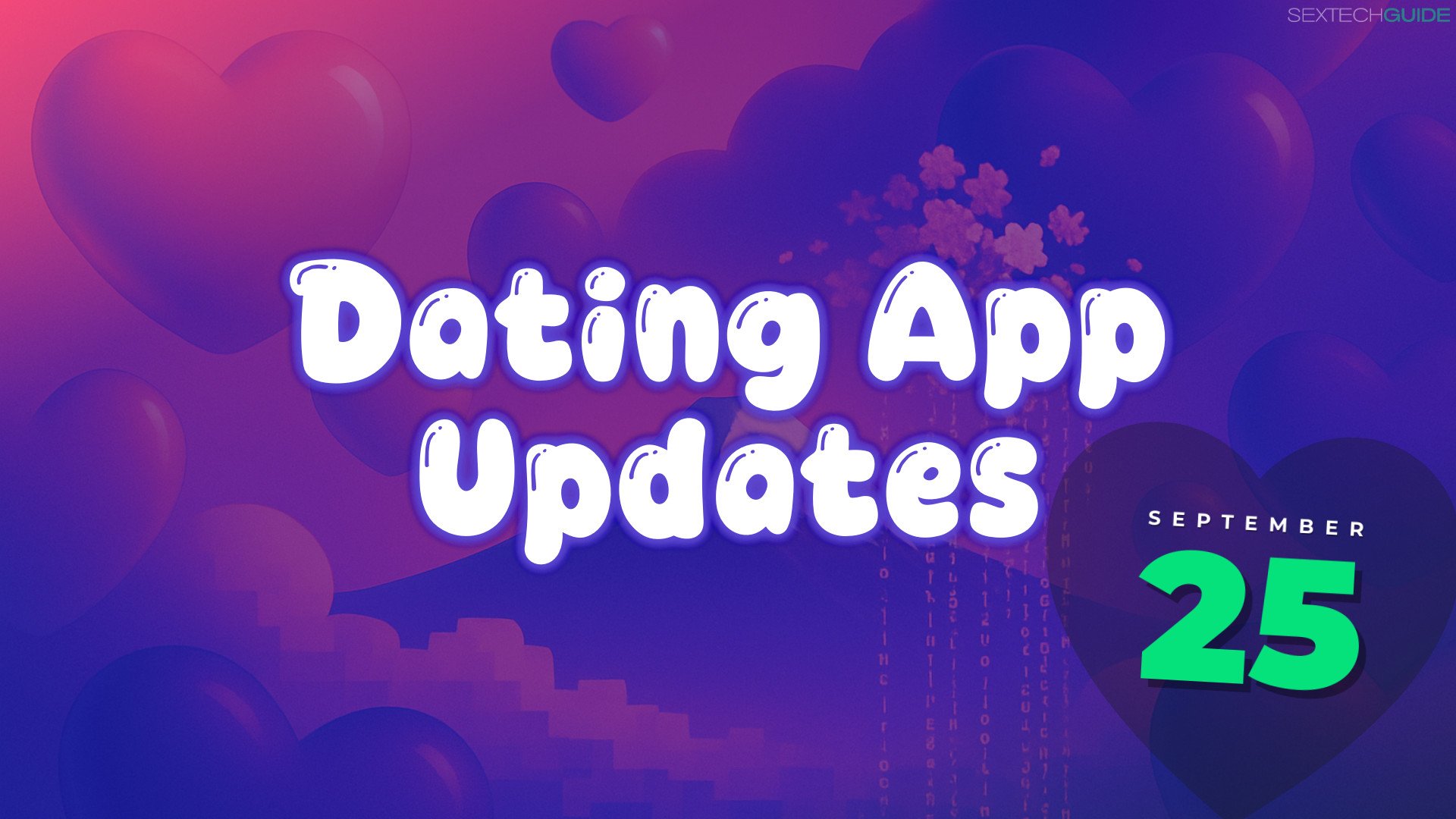








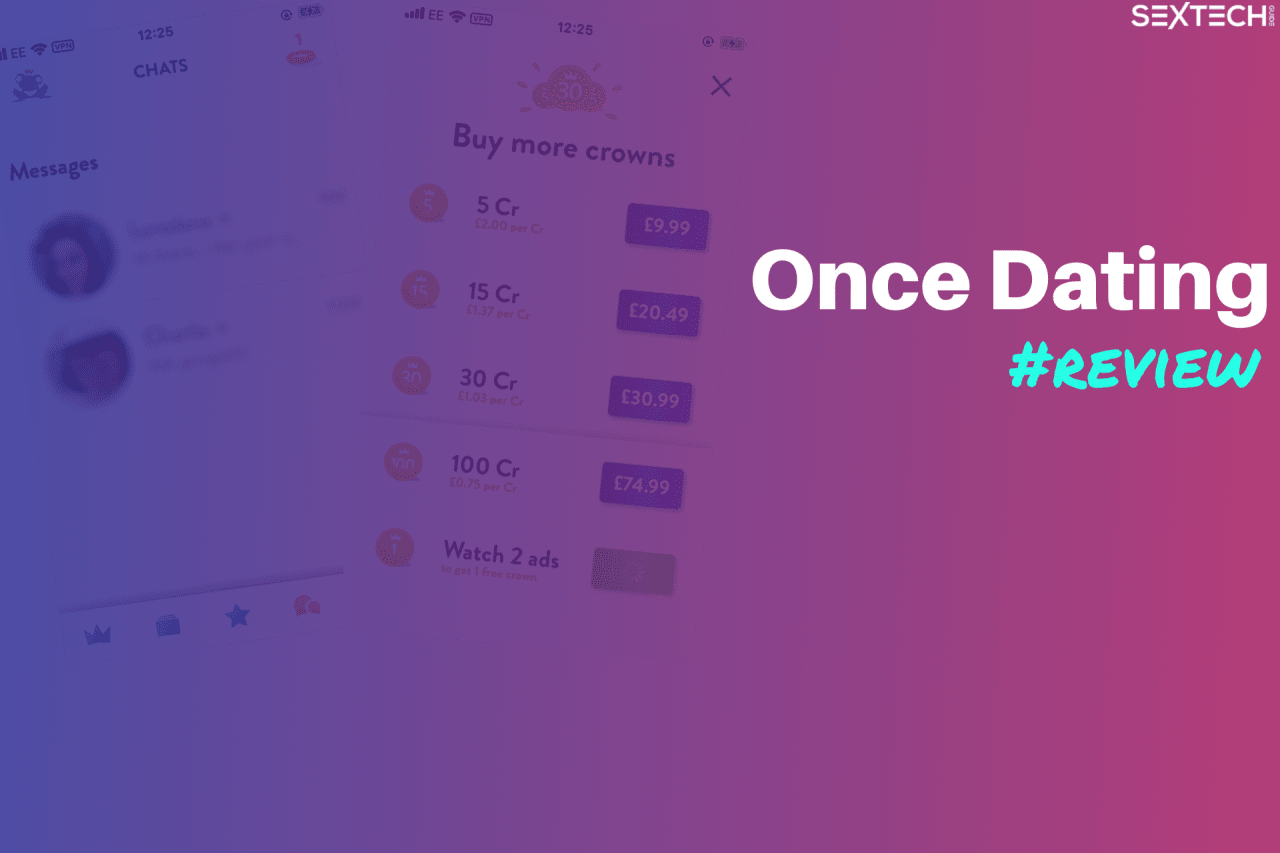



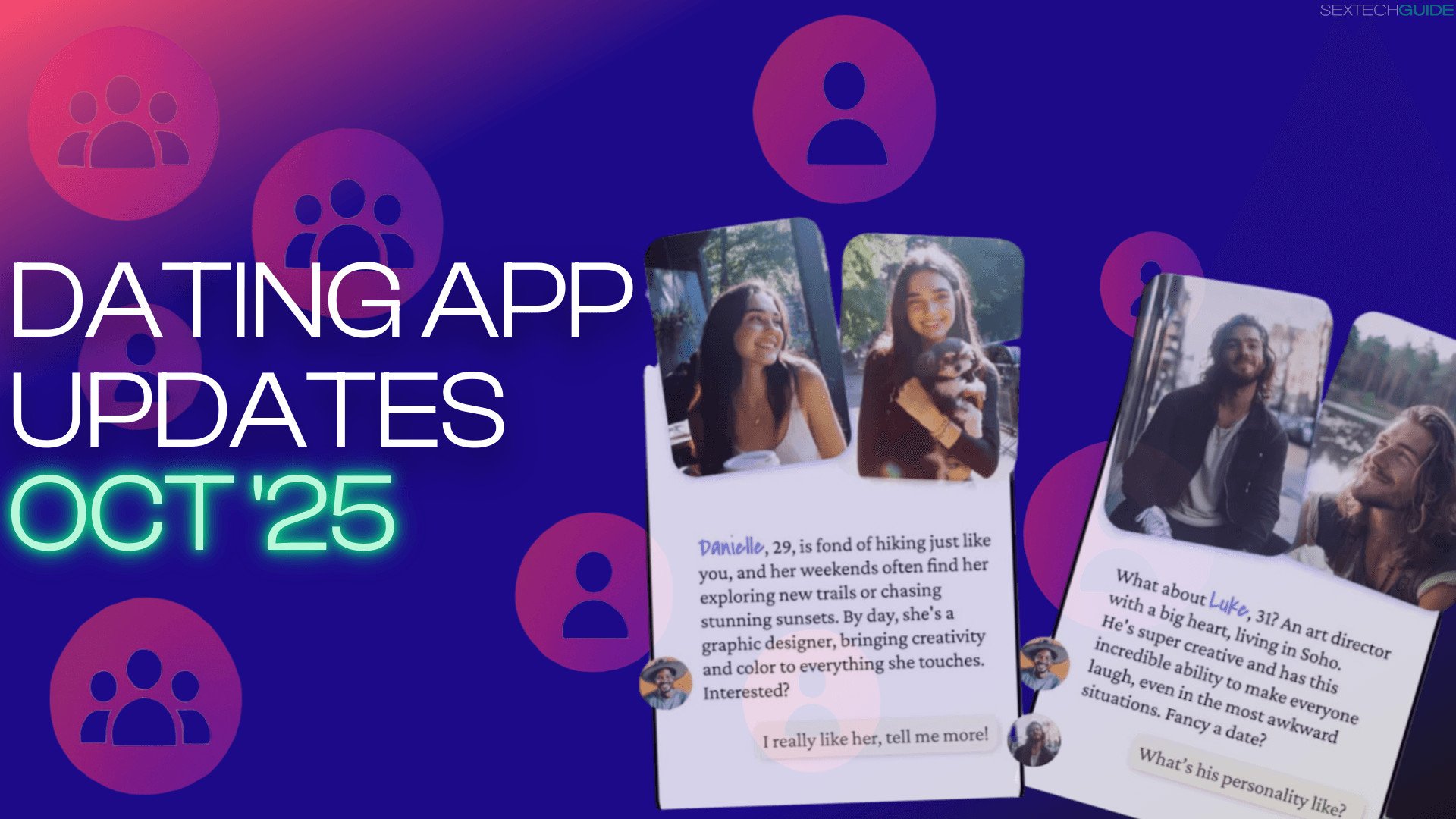




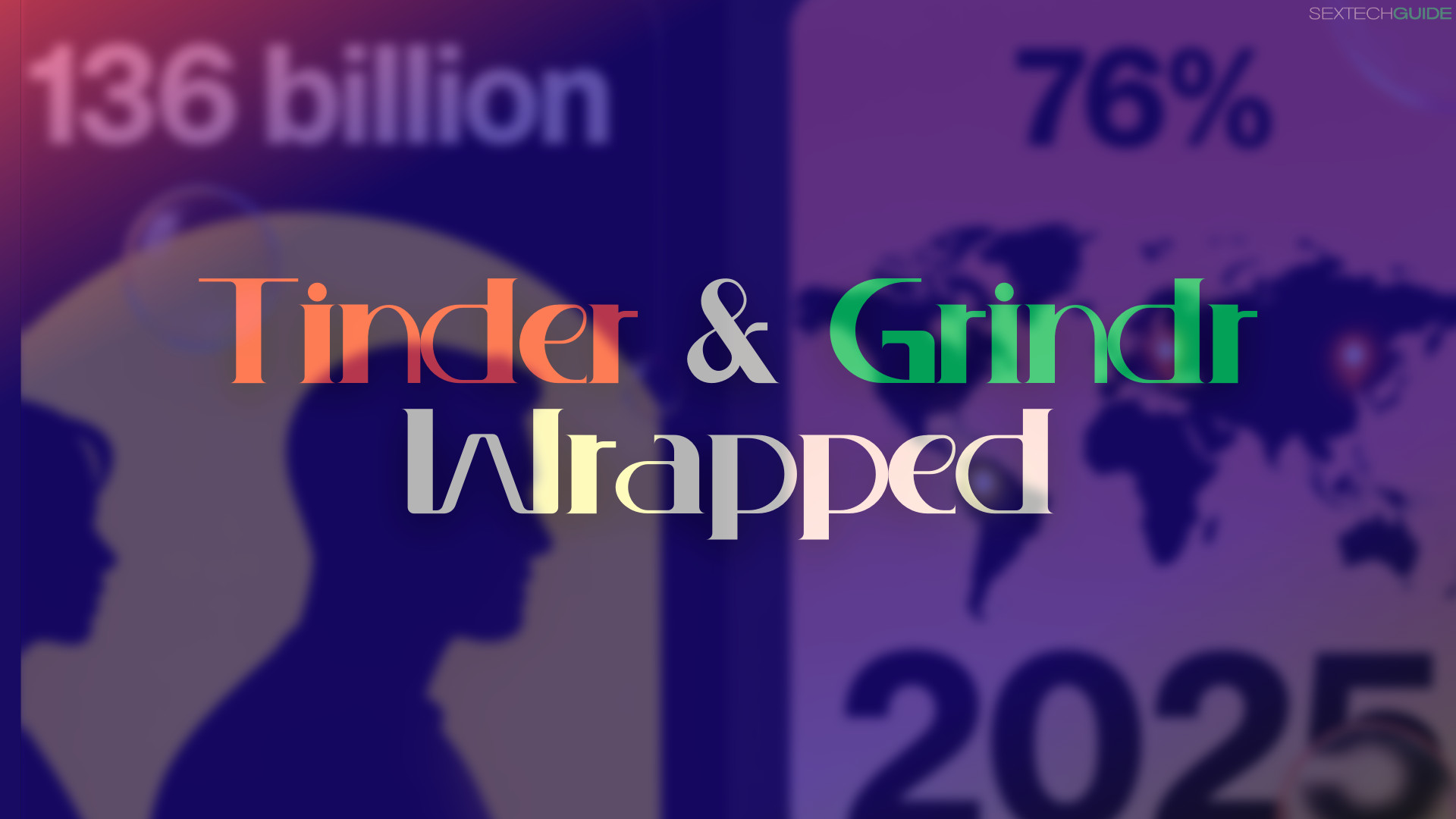












Leave a Reply